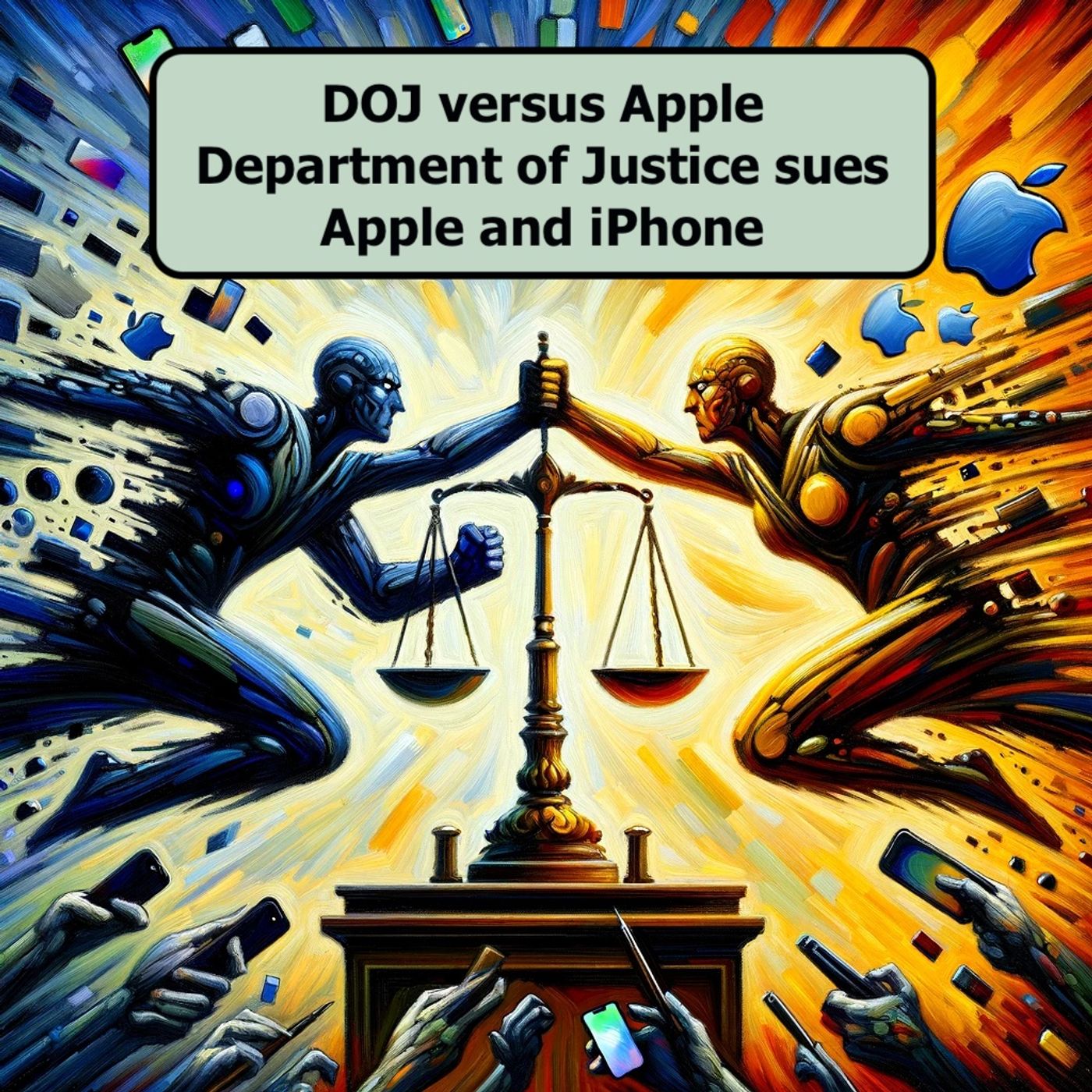Dec 12 2024 2 mins
Title: "Justice Department Pushes for TikTok Divestiture Amidst Ongoing Tech Tussles with Apple"
The Department of Justice (DOJ) is establishing a precursory period for the substantial tech tussle going on between the United States government and TikTok's parent company, ByteDance. The DOJ has given ByteDance a terse ultimatum to divest its popular social media application, TikTok, before January 19, a critical deadline. If ByteDance fails to do so, it risks facing an extensive ban on its successful app.
Meanwhile, amid the brewing legal battlefield between the DOJ and ByteDance, another global tech giant, Apple, enjoys a rocky, albeit distinctive relationship with the United States justice system.
Apple, a global leader in the tech industry, has experienced notable friction with the DOJ in the past. Historically, Apple's discretion as to how its data, particularly user data, is handled has been the bone of contention between them and the DOJ.
Certainly, this is not the first time Apple finds itself in the crosshairs of the US government's watchful eyes. However, what sets Apple apart, to an extent, in these skirmishes is the Cupertino-based company's commitment to user privacy, even if it means clashing heads with the government.
In past years, we've seen Apple making a strong case against the DOJ's insistence on creating backdoors to its iOS mobile operating system. These backdoors, the DOJ argued, would enable law enforcement agencies to circumvent encryption in instances of criminal investigations. Despite immense pressure, Apple stood firm on its stance, asserting that the creation of such backdoors posed significant threats to user privacy and security.
Today, even as the situation between ByteDance and the DOJ unfolds, Apple continues to uphold its commitment to user privacy and security while maintaining a tenable relationship with the US government.
At this time, what remains uncertain is whether Apple's ongoing negotiations with the DOJ will influence the fate of other tech players, like ByteDance, under the scrutiny of the American legal system. As we anticipate ByteDance's move before the DOJ's set deadline, we are also eager to witness how Apple navigates its unique position in this complex tech-legal maze.
Aligning with the ups and downs in the tech industry, both Apple and the DOJ demonstrate the continuing tug of war between corporate privacy rights and government oversight. This exemplifies the often blurry line between corporate responsibility to customer privacy and the state's law enforcement prerogatives.
In conclusion, the development of this story brings to the surface crucial questions about data privacy, government surveillance, and the intersection of technology and law.
The Department of Justice (DOJ) is establishing a precursory period for the substantial tech tussle going on between the United States government and TikTok's parent company, ByteDance. The DOJ has given ByteDance a terse ultimatum to divest its popular social media application, TikTok, before January 19, a critical deadline. If ByteDance fails to do so, it risks facing an extensive ban on its successful app.
Meanwhile, amid the brewing legal battlefield between the DOJ and ByteDance, another global tech giant, Apple, enjoys a rocky, albeit distinctive relationship with the United States justice system.
Apple, a global leader in the tech industry, has experienced notable friction with the DOJ in the past. Historically, Apple's discretion as to how its data, particularly user data, is handled has been the bone of contention between them and the DOJ.
Certainly, this is not the first time Apple finds itself in the crosshairs of the US government's watchful eyes. However, what sets Apple apart, to an extent, in these skirmishes is the Cupertino-based company's commitment to user privacy, even if it means clashing heads with the government.
In past years, we've seen Apple making a strong case against the DOJ's insistence on creating backdoors to its iOS mobile operating system. These backdoors, the DOJ argued, would enable law enforcement agencies to circumvent encryption in instances of criminal investigations. Despite immense pressure, Apple stood firm on its stance, asserting that the creation of such backdoors posed significant threats to user privacy and security.
Today, even as the situation between ByteDance and the DOJ unfolds, Apple continues to uphold its commitment to user privacy and security while maintaining a tenable relationship with the US government.
At this time, what remains uncertain is whether Apple's ongoing negotiations with the DOJ will influence the fate of other tech players, like ByteDance, under the scrutiny of the American legal system. As we anticipate ByteDance's move before the DOJ's set deadline, we are also eager to witness how Apple navigates its unique position in this complex tech-legal maze.
Aligning with the ups and downs in the tech industry, both Apple and the DOJ demonstrate the continuing tug of war between corporate privacy rights and government oversight. This exemplifies the often blurry line between corporate responsibility to customer privacy and the state's law enforcement prerogatives.
In conclusion, the development of this story brings to the surface crucial questions about data privacy, government surveillance, and the intersection of technology and law.
